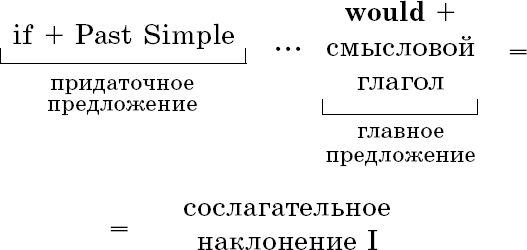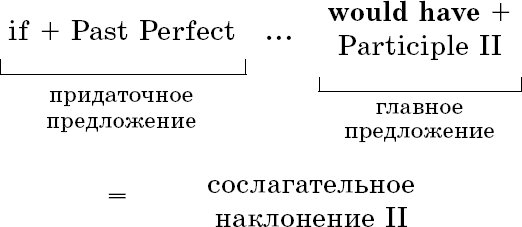Chapter 58
Soon after Lady Catherine’s visit Bingley brought Darcy with him to Longbourn. The gentlemen arrived early.
Now was the moment for Elizabeth’s words, and, when her courage was high, she immediately said:
“Mr. Darcy, I thank you for your unexampled kindness to my poor sister.”
“I am sorry, exceedingly sorry,” replied Darcy, in a tone of surprise and emotion, “that you have been informed of this. I did not think Mrs. Gardiner was so little to be trusted.”
“You must not blame my aunt. Lydia was the first to reveal your secret. Let me thank you again and again, in the name of all my family.”
“If you will thank me,” he replied, “let it be for yourself alone. Your family owe me nothing. I thought only of you.”
Elizabeth was too much embarrassed to say a word. After a short pause, her companion added, “If your feelings are still what they were last April, tell me so at once. My affections and wishes are unchanged, but one word from you will silence me on this subject for ever.”
Elizabeth could not hide her happiness. They walked on, without knowing in what direction. There was too much to be thought, and felt, and said. Darcy’s aunt told him about Elizabeth’s behaviour. But, unluckily for her ladyship, its effect had been exactly contrariwise.
“It gave me the hope,” said he.
Elizabeth coloured and laughed.
After walking several miles in a leisurely manner, they found at last, on examining their watches, that it was time to be at home.
“Where are Mr. Bingley and Jane?” asked Elizabeth.
Darcy was delighted with their engagement; his friend had given him the earliest information of it.
“You were surprised, were not you?” said Elizabeth.
“Not at all. When I went away, I felt that it would soon happen. On the evening before my going to London, I talked to him. I told him how I wanted to break his connection with Jane. His surprise was great. He had never had the slightest suspicion. I told him, moreover, that I believed, that your sister was indifferent to him. Bingley is very modest. After our conversation, he rushed to Jane. He was angry. But his anger, I am sure, lasted not long. He has heartily forgiven me now.”
Elizabeth observed that Mr. Bingley had been a good friend.
Chapter 59
The evening passed quietly. The lovers talked and laughed. At night Elizabeth opened her heart to Jane.
“You are joking, Lizzy. This cannot be! – engaged to Mr. Darcy! No, no, you shall not deceive me. I know it to be impossible.”
“I am sure nobody else will believe me, if you do not. Yet, indeed, it is true. I speak nothing but the truth. He still loves me, and we are engaged.”
Jane looked at her. “Oh, Lizzy! it cannot be. I know how much you dislike him.”
“You know nothing of the matter. Perhaps I did not always love him so well as I do now. But in such cases as these, a good memory is unpardonable.”
Miss Bennet still looked all amazement.
“Good Heaven! can it be really so! Yet now I must believe you,” cried Jane. “My dear, dear Lizzy, I congratulate you – but are you certain? Are you quite certain that you can be happy with him?”
“There can be no doubt of that. Yes, we are the happiest couple in the world. But are you pleased, Jane? Shall you like to have such a brother?”
“Very, very much. Nothing could give either Bingley or myself more delight. And do you really love him quite well enough?”
“Oh, yes! Very much!”
* * *
Next evening, soon after Mr. Bennet withdrew to the library, she saw Mr. Darcy rise also and follow him. Then Mr. Darcy appeared again, and Elizabeth, looking at him, was a little relieved by his smile. In a few minutes he approached the table where she was sitting with Kitty; and said in a whisper, “Go to your father, he wants you in the library.”
Her father was walking about the room. “Lizzy,” said he, “We all know him to be a proud, unpleasant sort of man; but this would be nothing if you really liked him.”
“I do, I do like him,” she replied, with tears in her eyes, “I love him. Indeed he was very proud. But, indeed, he is perfectly amiable. You do not know what he really is.”
“Lizzy,” said her father, “I have given him my consent. I now give it to you. I have no more to say. He deserves you.”
Elizabeth then told him what Mr. Darcy had done for Lydia. He heard her with astonishment.
“This is an evening of wonders, indeed! So much the better. It will save me a world of trouble and economy. I shall offer to pay him tomorrow; he will tell about his love for you, and there will be an end of the matter.”
When her mother went up to her dressing-room at night, Elizabeth followed her, and told her about Mr. Darcy. The effect was most extraordinary; Mrs. Bennet sat quite still, and unable to utter a word. She tried to comprehend what she heard.
“Good gracious! Lord bless me! only think! dear me! Mr. Darcy! Who would have thought it! And is it really true? Oh! my sweetest Lizzy! how rich and how great you will be! What money, what jewels, what carriages you will have! Jane’s is nothing to it – nothing at all. I am so pleased – so happy. Such a charming man! – so handsome! so tall! Dear, dear Lizzy. A house in town! Three daughters married! Ten thousand a year!”
Mr. Bennet said, smiling:
“I admire all my three sons-in-law highly,” said he. “Wickham, perhaps, is my favourite; but I think I shall like your husband quite as well as Jane’s.”
Грамматический комментарий
I have to tell you something. (Я должна вам кое-что сказать.)
Модальный глагол have to с последующим инфинитивом имеет значение вынужденности, необходимости, вызванной обстоятельствами, и соответствует в русском языке значению приходиться, быть вынужденным, должным. Используется в настоящем времени (I have to/ He has to do it.), в прошедшем времени (He had to do it.) и в будущем времени (I’ll have to do it.). Как и модальный глагол must глагол have to обладает значением необходимости, однако модальный глагол must выражает потребность сделать что-то в силу каких-либо личных устремлений, в то время как модальный глагол have to выражает необходимость выполнения действия из-за каких-либо внешних обстоятельств. Вопросительные и отрицательные предложения в случае использования модального глагола have to образуются при помощи вспомогательного глагола do в нужном времени.
In a few minutes he approached the table where she was sitting with Kitty…
(Через несколько минут он подошёл к столу, где она сидела с Китти…)
Her father was walking about the room… (Её отец расхаживал по комнате…)
Времена группы Continuous обозначают продолжительное действие и образуются при помощи вспомогательного глагола to be и формы глагола с —ing окончанием (V-ing). Was/ were + V-ing служат для построения времени Past Continuous, которое передает длительное действие в прошлом.
The gentlemen declared him to be a real man, the ladies declared he was much handsomer than Mr. Bingley, and he was looked at with great admiration for about half the evening.
(Джентльмены нашли его достойным представителем мужского пола, дамы объявили, что он гораздо привлекательнее мистера Бингли, и на него смотрели с большим восхищением примерно половину вечера.)
The question was asked by her uncle. (Вопрос был задан её дядей.)
Страдательный залог (The Passive Voice) употребляется в том случае, когда подлежащее является лицом или предметом, подвергающимся действию со стороны другого лица или предмета. The Passive Voice образуется при помощи вспомогательного глагола to be и past participle (причастия прошедшего времени или V3, третьей формы глагола). Страдательный залог (The Passive Voice) используется во всех временах.
What does he say?
(Что он сказал?)
Do not make yourself uneasy, my dear cousin, about your dress.
(Не тревожьтесь, моя дорогая кузина, о вашем платье.)
Вопросительная форма простого настоящего времени (Present Simple) для III лица единственного числа образуется с помощью вспомогательного глагола does, который ставится после вопросительного слова перед подлежащим. Отрицательные предложения простого настоящего времени (Present Simple) для I и II лица образуются с помощью вспомогательного глагола do и отрицательной частицы not (при сокращении don’t).
Have you seen her there?
(Ты видел её там?)
Since her father’s death, her home has been London…
(После смерти её отца, Лондон был её домом…)
Has/have (вспомогательный глагол) + V3 (третья форма глагола) служат для построения времени Present Perfect, которое переводится на русский язык глаголом в прошедшем времени. Present Perfect употребляется для описания совершенного действия, которое совершилось или непосредственно перед моментом речи, или в более отдаленном прошлом. При этом говорящего интересует не время совершения действия, а его результат, имеющийся в данный момент. Допускаются сокращения, например: I have = I’ve; he has = he’s.
… she might be her future niece.
(… в будущем она может стать её племянницей.)
I might have been mistress! (Я чуть было не стала хозяйкой!)
Модальный глагол might служит для передачи низкой степени уверенности и выражает возможность, вероятность. На русский язык переводится как может быть, возможно.
… said Mrs. Reynolds, pointing to another of the miniatures…
(… сказала миссис Рейнольдс, указывая на другую миниатюру…)
Bingley expressed great pleasure of seeing Elizabeth again, hoping to speak about her sister.
(Бингли выразил большое удовольствие снова видеть Элизабет, надеясь поговорить о её сестре.)
“Oh! where, where is my uncle?” cried Elizabeth, darting from her seat…
(«О! где, где мой дядя?», – воскликнула Элизабет, вскакивая со своего места…)
Отдельно стоящая (не как часть времен группы Continuous) форма глагола с окончанием —ing часто переводится на русский как деепричастие.
He wrote me to say that he had arrived in safety.
(Он написал мне, чтобы сообщить, что добрался благополучно.)
… he had immediately found out his brother.
(…он незамедлительно нашёл своего брата.)
He had been some days in town…
(Несколько дней он был в городе…)
Had (вспомогательный глагол) + V3 (третья форма глагола) служат для построения времени Past Perfect, которое переводится на русский язык прошедшим временем и обозначает действие, которое произошло до какого-то другого действия в прошлом. Past Perfect – это «предпрошедшее». Допускается сокращение, например: I’d, I hadn’t (done).
I would not dance with him, if I were you.
(Я бы не стала танцевать с ним, будь я на твоём месте.)
I would go and see her if I could have the carriage. (Если бы можно было взять экипаж, я бы охотно её навестила.)
If she found Jane in a danger, Mrs. Bennet would have been very miserable. (Если бы она нашла Джейн в опасном состоянии, миссис Беннет была бы этим удручена.)
Сослагательное наклонение

Образование сослагательного наклонения I

Пример: If I learnt English, I would go to England.
Если бы я выучил английский, я бы поехал в Англию. (сейчас или в будущем)
Образование сослагательного наклонения II

Пример: If I had learnt English, I would have gone to England.
Если бы я выучил английский, я бы поехал в Англию. (в прошлом)
…how long Mr. Darcy had been staying there.
(…давно ли здесь находится мистер Дарси.)
Colonel Fitzwilliam had been sitting with them at least an hour. (Полковник Фицуильям просидел с ними как минимум час.)
Had (вспомогательный глагол) + been + V-ing служат для построения времени Past Perfect Continuous, которое обозначает продолжительное действие, начавшееся в прошлом и длившееся до определенного момента.
The church ought to have been my profession – I was brought up for the church.
(Моей сферой должна была стать церковь – меня воспитывали для духовной стези.)
В отличие от некоторых других модальных глаголов английского языка модальный глагол ought to обладает только формой настоящего времени. Глагол ought to переводится как «следует/должен». По значению этот глагол очень похож на глагол should. Модальный глагол ought to служит для выражения совета, морального или социального долга; твердой уверенности, которая передается словами «должно быть», «по-видимому».

